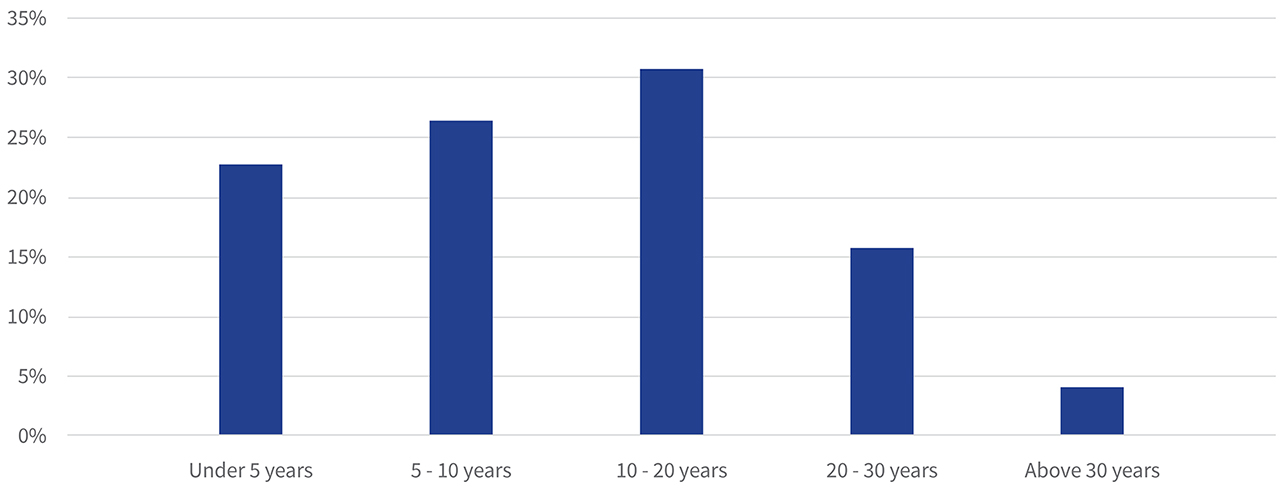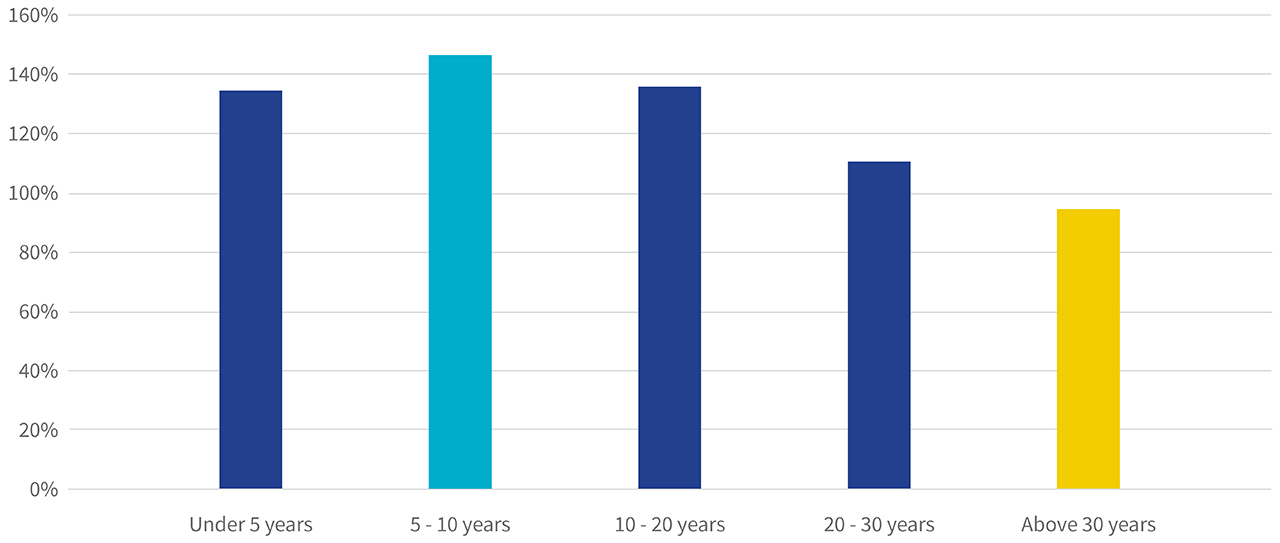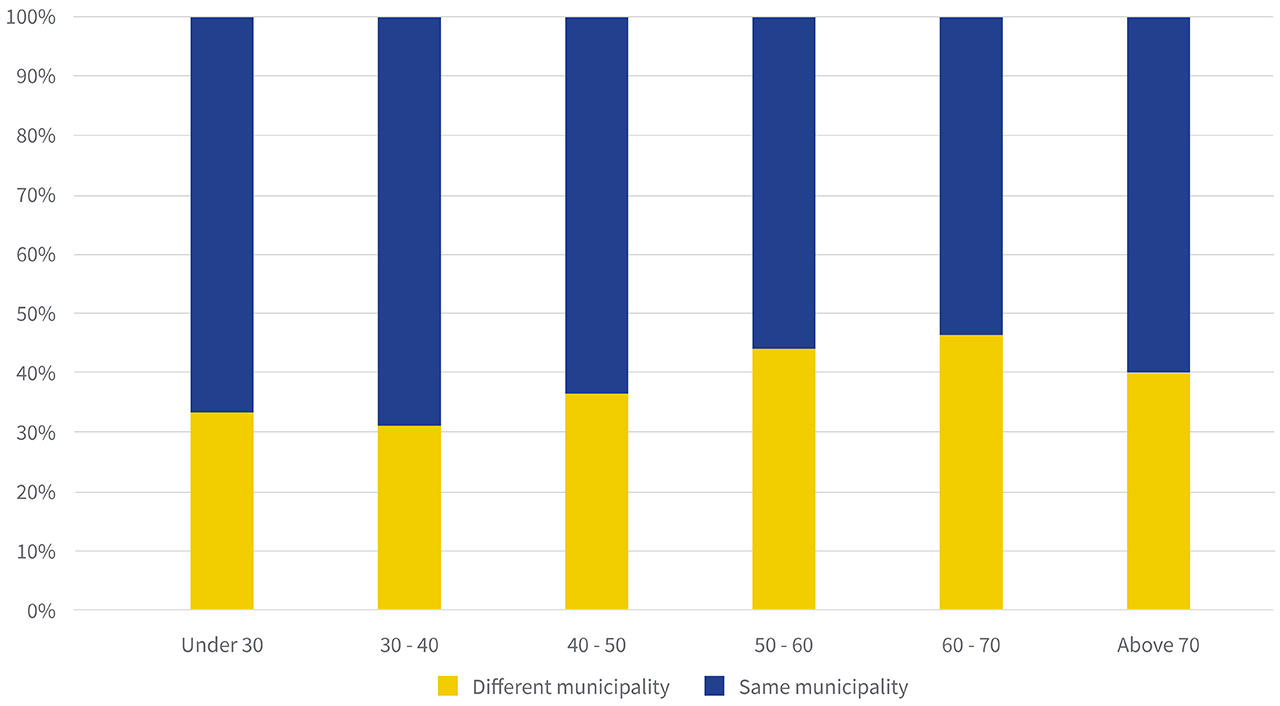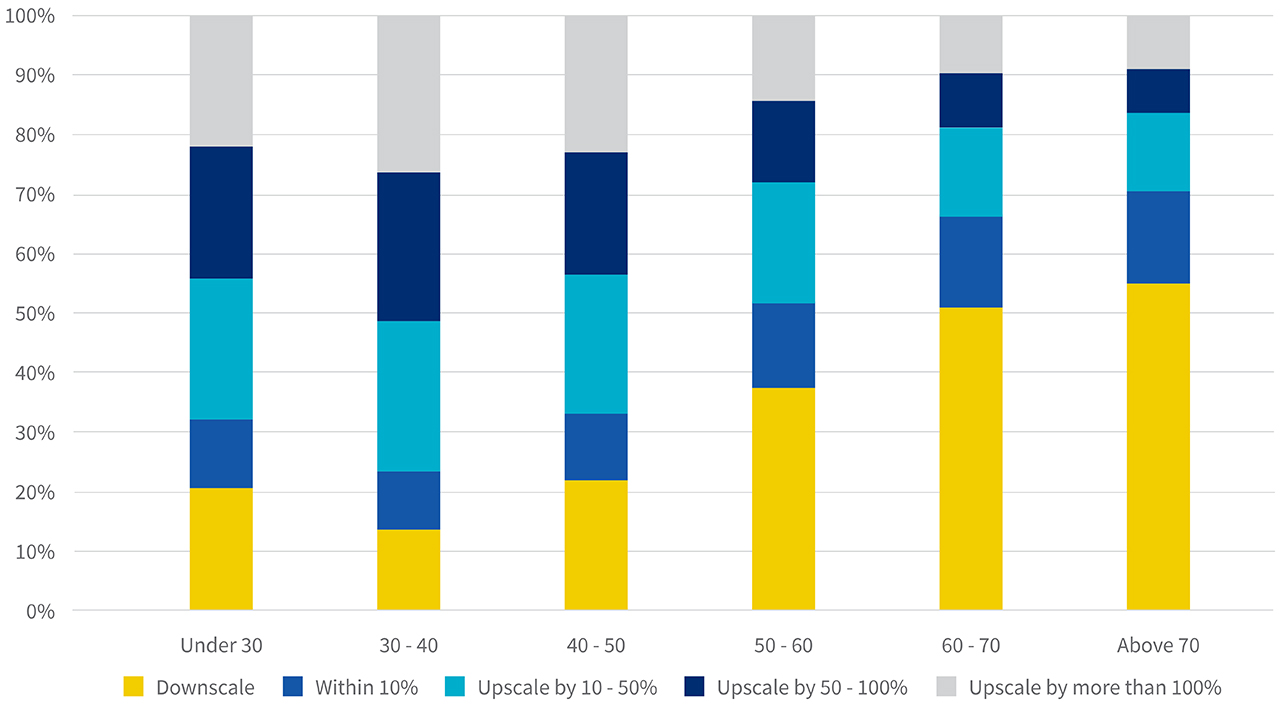Property Newsletter | May 2023
Where are they now?
Life after first time home buyers move on
We often talk about First Time Buyers (FTB) in terms of what they bought, and where, how old they were and what they spent, and so Lightstone decided to track the journey of FTBs who sold in 2022.
Around 30 000 FTBs sold up in 2022 to buy their second home – and almost 50% of them had been in their first property for less than 10 years, while just over 30% had been in their first homes for between 10-20 years, 15% between 20-30 years and 5% for more than 30 years.
Tenure of FTB in their first property

Data, at current values shows that those who had been in their first homes for between 5-10 years sold, on average, for R1.4m to upscale and buy their next home for, on average, R2.1m. At the other end of the scale, those who had been in their first home for more than 30 years downscaled, buying their next home, on average, for less (R1.7m) than they sold for (R1.8m).
Change in value per tenure bracket

Of the FTBs who sold in 2022, the largest group were aged between 30-40, followed by the 40-50 and 50-60 year old age groups.
Age when selling that first property

On average, those under 60 who sold their first homes spent more buying their second home, with the biggest gap being 30-40 year olds, who sold for R1.35m and bought for R2.1m. Those over 60 bought for less as they downscaled.
Change in value per age bracket

Interestingly, it is the older age groups which move municipalities more, presumably as they move to a place of retirement. The 60-70 year olds were most likely to move to a new municipality, followed by the 50-60’s and then the over 70’s. The least likely to move municipalities were the 30-40 year olds.
Moving to a new municipality

If we consider who buys for less than they sell (ie they downscale) it is least likely in the 30-40 year band and then increases with age, peaking at around retirement age and beyond. The under 30 age band is something of an anomaly with relatively more, downscaling which may be the result of some families overcommitting in their first purchase and growing expenditures.
Downscale or upscale


.png)
.png)
.png)
.png)